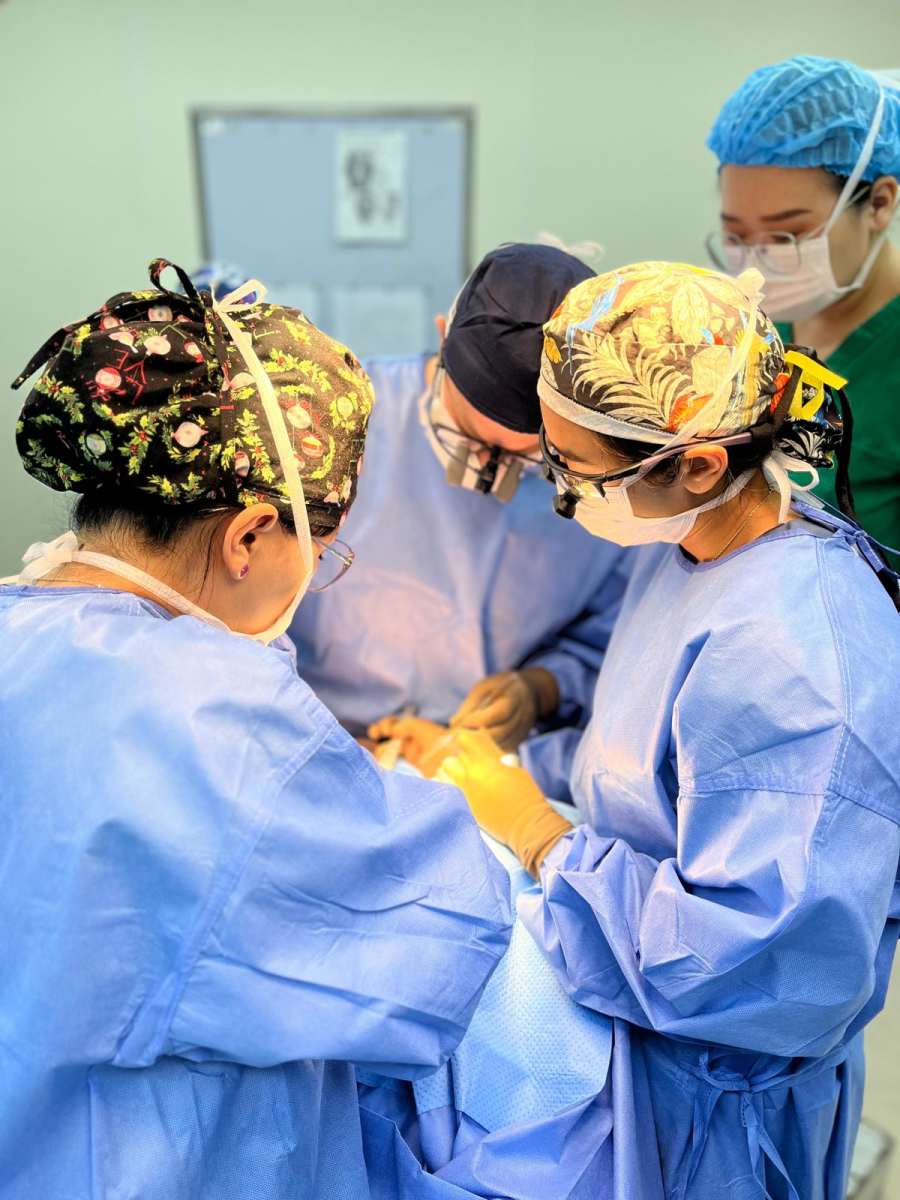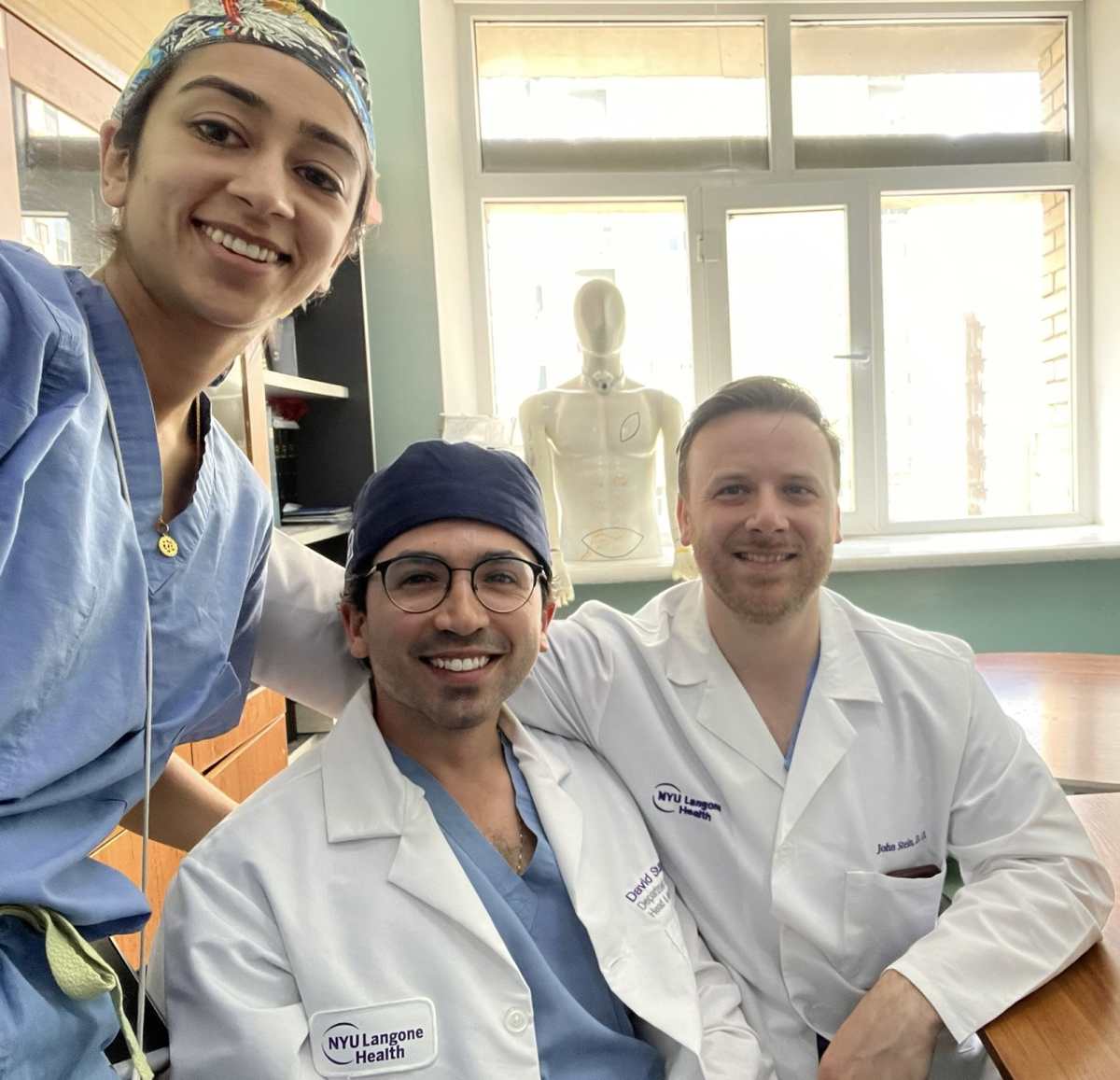This June I will be traveling to the National Cancer Center of Mongolia in Ulaanbaatar alongside a group of surgeons, residents, and operating room nurses trained in head and neck oncologic surgery and microvascular reconstruction from NYU. Because microvascular reconstruction is a relatively new field in Mongolia, with the first free flap was performed only about 15 years ago, we will focus on taking care of complex patients with needs for reconstruction after oncologic, traumatic, or iatrogenic defects. The only hospital currently performing microvascular free flaps is the National Cancer Center, and we will be working here with the local surgeons on different types of microvascular free flaps that they do not commonly perform for head and neck reconstruction. Specifically, we will review cases with the attending surgeons at the cancer hospital and screen them prior to our visit to choose appropriate patients in need of advanced surgical care. While on site, we will work with the local surgeons on new techniques and the appropriate post operative care, building off their fund of knowledge in complex head and neck reconstruction.
The National Cancer Center of Mongolia is the sole governmental hospital in the country specializing in cancer diagnosis, treatment, and surveillance. This project will help their head and neck oncology department in gaining skills and techniques to provide appropriate functional outcomes to their patients requiring extensive cancer resections. This project will also help the patient population of Mongolia, many of whom would not otherwise have access to the breadth of microvascular reconstruction techniques that we widely adopt in our practices. Due to the existing relationships between their medical system and the Virtue Foundation, this population and location was chosen to help strengthen an ongoing partnership that will have longitudinal benefits long after this trip concludes.
The goals of Virtue Foundation missions are first and foremost to patient care, but the teaching and training of Mongolian doctors is a strong priority. The expected impact is to add sustainable skills and knowledge to the local medical system to provide a lasting impact on current patients and future patients who require complex levels of care. Additionally, the donation of medical and surgical supplies and equipment will serve both the patients and the providers in their current and ongoing care. In addition to the knowledge sharing impacts in the future, the Virtue Foundation also collects data that helps reveal insights and trends across the Mongolian healthcare system and works with the Mongolian Ministry of Health to translate this data into tangible impacts. Our team previously traveled to Mongolia in 2019 alongside the Virtue Foundation, and this is our first time back since the COVID pandemic. We are excited to continue building relationships with otolaryngologists while working towards a common goal of treating head and neck cancer and hope to continue returning to this site and fostering a lasting relationship.
Additionally, I am also pursuing head and neck surgery fellowship and feel that this experience will be an invaluable addition to not only my medical and surgical training, but to the establishment of my career goals. While we are separated through culture and language, we share the same goals and objectives for our head and neck patients. This exchange of knowledge and culture offers us opportunities for growth and the formation of lifelong connections. I am committed to incorporating international health into my future practice and am excited at this first opportunity for global outreach.






We recently completed a surgical mission to Ulaanbaatar, Mongolia, which focused on assisting local head and neck and reconstructive surgeons in the treatment of patients with complex malignancies, facial paralysis, traumatic injuries, and complex benign tumors.
On our first day at the cancer center, surgeons from the Mongolia National Cancer Center, the Central Military Hospital, and the Mongolia Japan University hospital presented about 20 complex head and neck patients for our recommendations and assistance with operative planning and execution. Over the next few days working alongside the Mongolian surgeons and staff, we completed twelve operations, among them six microvascular free flaps and four surgeries for malignant diseases.
One patient sustained a penetrating wound with an AK-47 round in military service which had destroyed much of his right mandible and was only previously able to received soft tissue reconstruction due to the local surgeon and hospital capabilities. This limited his functional capabilities and his outward aesthetics. We performed and taught the local surgeons how to perform osseous microvascular reconstruction with a fibular free flap.
The local surgeons also had limited experience with facial nerve reconstruction, and presented two patients who had prior parotid surgery complicated by facial paralysis resulting in social withdrawal and emotional suffering. We were able to perform two gracillis free muscle microvascular reconstruction for both of these patients while teaching the Mongolian surgeons the flap harvest and inset during the procedure.
We also performed resections of complex oral cavity, thyroid, carotid body, and cutaneous malignancies and performed reconstructive techniques novel to the local hospitals including rectus muscle microvascular reconstruction.
By working alongside the Mongolian surgeons, we were able to provide hands-on training and foster an environment of learning and collaboration that will hopefully have lasting benefits for the region's healthcare system. Thank you to the Dox Foundation for your invaluable support in helping us share our knowledge and skills with the local medical community.